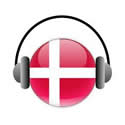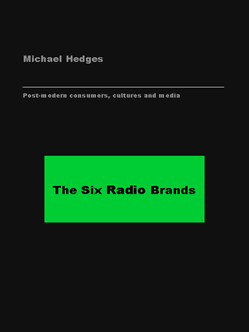ftm Radio Page - week ending June 14, 2019
Regulator suspends phone-in shows, broadcasters "quite angry"
"potential to incite the masses"
Radio phone-in programs have no fans at the Malawi Communications Regulatory Authority (MACRA). The media regulator “suspended” phone-in shows from radio stations “with immediate effect,” reported Marivi Post (June 7). Results of recent elections have been met with outrage in some quarters. Some, it seems, have taken that expression to radio phone-in shows.
The regulator complained of “the conduct of some broadcasters who are indulging themselves in careless and unethical coverage of post-election events,” in a statement from MACRA Director General Godfrey Itaye (June 7). “Such broadcasts have the potential to incite the masses into violence. The Authority is hereby suspending all phone-in programs with immediate effect until further notice.” (See more about elections and media here)
“We are quite angry and disappointed about this,” said Capital Radio director Alaudin Osman, quoted by VOA (June 11), who called the suspension “unfair because most of our programs are talk programs. Somebody, somewhere, seems to be afraid of public opinion.” (See more about media in Africa here)
Malawi’s general election was held May 21st with results delayed over protests of vote rigging. A fiber cable outage on election day disrupted radio and television broadcasts and internet access. After a court injunction was lifted President Peter Mutharika was proclaimed the winner by a slim margin. Supporters of losing candidates went to the streets and clashed with police.
Radio highly credible, still
Influencers have little influence
Radio broadcasters continue to have very high credibility compared with other media, new media in particular. Research commissioned for Best4Planning Trends (b4p) ranks radio in Germany as having the highest credibility for news (83%), followed closely by “news websites of major media brands” (81%), public television channels (80%) and daily newspapers (79%). A quarter of those surveyed (25%) found social media credible. Bloggers, YouTubers and Influencers were at the bottom, deemed credible by only 19%.
In general, established news media outlets have more credibility among Germans with higher educational levels. And there is a marked geographic separation; people living in West German states ascribe greater credibility (64%) than Eastern states (53%). The online survey was conducted with 1016 interviews of people over 16 years. Best4Planning is a media buying resource organized and funded by major German media houses. Results were summarized by meedia.de (June 13). (See more about media in Germany here)
These results are similar to a study prepared for regional German public broadcaster WDR in March. That report showed the highest credibility (82%) for public radio, followed by public TV (77%), daily newspapers (71%) and private radio (41%). A similar 2016 study pegged the credibility of public radio broadcasters at 72% and privately-owned radio at 56%. The credibility of social media had dropped to 5% from 10% between 2018 and 2016.
Political Winds Shift, Media Adjusts Again
 The center-right coalition of Liberal Alliance and Danish People’s Party that had led the country off and on for more than a decade was overrun by a new center-left coalition of the Social Democratic party, Radical Left, Socialist People’s Party and Red-Green Alliance. The new coalition - referred to as the Red Block - wants little to do with the media policies that came before, almost.
The center-right coalition of Liberal Alliance and Danish People’s Party that had led the country off and on for more than a decade was overrun by a new center-left coalition of the Social Democratic party, Radical Left, Socialist People’s Party and Red-Green Alliance. The new coalition - referred to as the Red Block - wants little to do with the media policies that came before, almost.
Radio Page week ending June 7, 2019
Vatican Radio, Latin language, Hebdomada Papae, Radio Bremen, Radio FREI, podcasts, Deezer, drama series, climate change, Spotify, Barrack Obama
Radio Page week ending May 31, 2019
media in Slovenia, Radio Student, Radio Koper, RTV SLO, radio brands
Radio Page week ending May 24, 2019
Spotify, playlists, European Parliament elections, elections and media, Vengaboys, radio in France, Europe 1, Lagardere Active
Radio Page week ending May 17, 2019
radio in the UK, radio audience, RAJAR, BBC Radio, public broadcasting, commercial radio, Radio 2, Radio 4, Radio 1, Five Live, Magic, LBC, Heart, Classic FM, Kiss, Smooth, digital transition, millennials, radio in Sweden, Sveriges Radio, public broadcasting, online radio
Radio Page week ending May 10, 2019
radio in Russia, Radio Day, Alexander Popov, radio in Ireland, radio audience, JNLR/Ipsos, RTE Radio 1, Radio 2FM, Today FM, Newstalk, Communicorp, Wireless Group, Bay Broadcasting
Radio Page week ending May 3, 2019
radio in Norway, radio audience, Norwegian Media Monitor, Statistics Norway, digital transition
Radio Page week ending April 26, 2019
radio in France, radio audience, Mediametrie, RTL, France Inter, France Info, RMS, RFM, Europe 1, NRJ, Ile-de-France audience, Radio Latina, TSF Jazz, radio in Switzerland, traffic reports, Radio Plein Air
Radio Page week ending April 19, 2019
radio in Denmark, Radio24syv, Berlingske Media, Jysk Fynske Media, radio in Italy, Radio Radicale, radio news, radio archives
Radio Page week ending April 12, 2019
radio in Norway, local radio, digital transition, NRK, media support, radio in Africa, local news, media development, community radio, UNESCO, Fondation Hirondelle, Media Development Investment Fund
Radio Page week ending April 12, 2019
radio in Norway, local radio, digital transition, NRK, media support, radio in Africa, local news, media development, community radio, UNESCO, Fondation Hirondelle, Media Development Investment Fund
Radio Page week ending April 5, 2019
radio in Russia, radio audience, audience measurement, Novy Radio
Radio Page week ending March 29, 2019
radio in Spain, Radio Marca, Cadena Cope, sports and media, radio in the Netherlands, radio audience, audience measurement, NLO, radio advertising
Radio Page week ending March 22, 2019
radio in Ireland, independent local radio, BAI
Radio Page week ending March 15, 2019
podcasts and podcasting, Spotify, Gimlet Media, Luminary, radio in Africa, radio in Nigeria, Jay FM, elections and media, radio in Russia, Ekho Moskvy, Gazprom Media
Radio Page week ending March 8, 2019
radio in France, CSA, DAB+, Air Zen, radio in Germany, consumer electronics, FM shut off, digital radio, radio in Switzerland, digital transition, music radio, Michael Jackson, NRK P1, BBC Radio 2, Spotify
Radio Page week ending March 1, 2019
radio in the UK, Global Radio, national radio brands, local media, Capital, Heart, Smooth, BBC Radio, media brands, DJs
Recently added radio audience figures and resources
- UK - National Radio Audience (May 2019)
market share, trend, sectors - UK - London Radio Audience (May 2019)
market share, trend - UK - National Radio Audience (May 2019)
BBC/commercial 'gap' - Ireland - Major Media - Radio Broadcasting (May 2019)
national public and commercial radio channels, major local/regional stations, management, listening share - France - Greater Paris Radio Audience (April 2019)
national and local channels, market share, trend - France - National Radio Audience (April 2019)
national channels, sectors, market share, reach/TSL - Belgium - Flemish region, Radio Audience (February 2019)
market share, Sep-Dec 2017 to Sep-Dec 2018 trend - Belgium - French region, Radio Audience (February 2019)
market share, Sep-Dec 2017 to Sep-Dec 2018 trend - Poland - National Radio Audience (January 2019)
national survey, market share, trend - Spain - National Radio Audience (released November 2018)
national channels, reach share, trend - France - National Radio Summer Audience (September 2018)
national channels, summer period 2013-2018 trend - Netherlands - Radio Audience (May 2018)
national survey, market share, trend - Switzerland - Radio listening by region (Jaunary 2018)
public and private sectors, penetration, time spent listening - Switzerland - French region Radio Audience (January 2018)
share, trend - Switzerland - Swiss-German region Radio Audience (January 2018)
share, trend - Switzerland - Italian region Radio Audience (January 2018)
share, trend - Czech Republic - Radio Audience (November 2017)
Top stations, national survey, reach trend - Turkey - Major Media - Radio Broadcasting (October 2017)
ownership, management, program formats, platforms, audience estimates - Portugal - National Radio Audience (May 2017)
leading stations, audience share, trend - Germany - Radio Audience (March 2017)
leading stations, audience trend, daily reach - Romania - Radio Audience (January 2017)
national and Bucharest surveys, market share, trend - Italy - Major Media - Radio Broadcasting (July 2016)
public and private broadcasting companies, channels, audience reach/share, management - Spain - National Radio Audience (April 2016)
national channels, reach share, trend - Sweden - Major Media - Radio Broadcasting (February 2016)
public and private radio channels, owners, management, national market share trend - Poland - Major Media - Radio Broadcasting (January 2016)
public and private radio channels, owners, management, platforms, market share - Estonia - Major Media - Radio Broadcasting (December 2015)
public and private broadcasting companies, channels, management, platforms, audience estimates - Spain - Major Media - Radio Broadcasting (December 2015)
public and private broadcasting companies, channels, management, platforms, audience estimates - Ireland - Major Media - Radio Broadcasting (November 2015)
national public and commercial radio channels, major local/regional stations, management, listening share - Finland - Major Media - Radio Broadcasting (September 2015)
public and private radio channels, management, market share, platforms - Ireland - National Radio Audience (August 2015)
market share, 07h00-19h00, trend - Ireland - Dublin Radio Audience (August 2015)
market share, 07h00-19h00, trend - Greece - Major Media - Radio Broadcasting (June 2015))
public and private broadcasting, owners, executives, market share
More Resources
Also see ftm Knowledge
Europe's Radio - Southern Europe
Radio broadcasting in southern Europe ranges from highly developed to developing highly. Italian, Spanish and Portuguese radio is unique, creative and very popular. Radio in Croatia, Serbia and Greece has had ups and downs. The ftm Knowledge file includes Resources. 126 pages PDF (June 2015)
Order hereEurope's Radio - Western Europe
Opportunity meets tradition in Western Europe's radio broadcasting. Change has come fast and yet oh, so slowly. This ftm Knowledge file contains material and resources on public and private radio broadcasting in Austria, Belgium, France, Germany, Liechtenstein, Netherlands and Switzerland. 244 pages. Resources. PDF (September 2013)
Europe’s Radio – Eastern Europe
Eastern Europe’s radio writes new rules. In fact, most everything about radio in this region is new... and changes often. The ftm Knowledge file reports on Belarus, Bulgaria, Czech Republic, Hungary, Moldova, Poland, Romania, Russia, Slovakia and Ukraine. 159 pages PDF (April 2013)
Europe’s Radio – Northern Europe
Northern Europe’s radio has a very digital sound. And change is in the air. Economic challenges abound for both public and commercial broadcasters. The ftm Knowledge file reports on Denmark, Estonia, Finland, Iceland, Ireland, Latvia, Lithuania, Norway, Sweden and the UK. 144 pages PDF includes Resources (November 2012)
Digital Radio - Possibilities and Probabilities
Digital radio has many platforms. From broadcast platforms to internet radio and rapidly emerging smartphone platforms, listeners and broadcasters have choices galore and decisions to make. Some regulators have made up their minds, others not, some hedging their bets. This ftm Knowledge file details the possibilities for digital broadcasting and the probabilities for success. Includes Resources 149 pages PDF (August 2012)
Become an ftm Individual or Corporate Member and receive Knowledge files at no charge. JOIN HERE!
ftm Knowledge files are available to Members at no additional charge.

The Six Radio Brands is about the uniquely European development of radio brands. Competition among broadcasters - and certainly between the public and commercial sectors - gives radio in Europe a rich dynamic. As consumers become more media-literate and demand more attachment broadcasters find target markets illusive. 100 pages. 2004 Available at no charge to ftm Members, €49 for others. Email for more information |